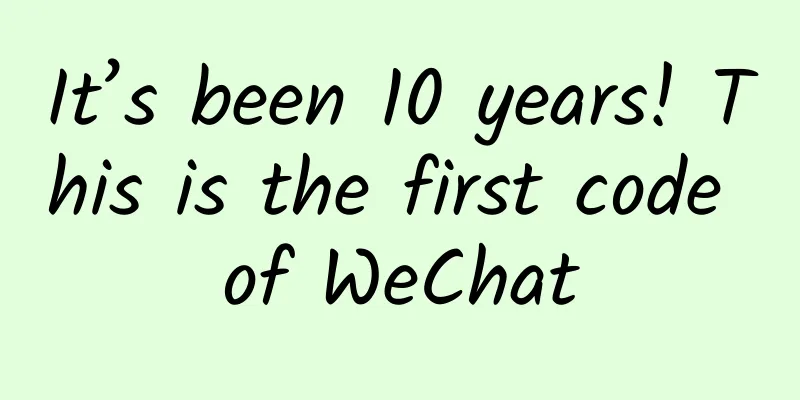Where is the keychain on my father's waist?

|
I don’t know if you have noticed that the bunch of keys that always hung around your father’s waist is gone. In my childhood memories, my father's image is always associated with a tall and sturdy figure and a resolute expression. When I was a child, I always felt safe when I sat on the back seat of my father's bicycle and listened to the clattering of the key chain on his waist. Among these keys, there are trivialities of home, busyness of the office, and horns of cars on the road... As time goes by, in the sound of the keys clattering, my father's career flourished and he also gave us a warm home. But now, with the popularity of shared bikes, my father's bicycle keys have disappeared. He no longer needs to take out the key to unlock the bicycle, but can take out his mobile phone and scan it on the roadside anytime and anywhere to get on the bike. The continuous development of technology has made more of my father's keys "taken away" one by one. Use fingerprints to open the door of a new house in the city; use facial recognition to open the door of the office; use mobile phone software to start and unlock smart cars, etc. These jingling metal keys are gradually replaced by technology. Of course, the coolest smart car is not just one that lacks a key to open the door. You can summon your car at any time with voice. At the same time, the car will automatically obtain information about your driving habits, fuel consumption, vehicle location, etc., and respond in case of emergency. So you can boldly try unmanned driving and use your freed hands to do something more meaningful (for example, while driving in the car, you can freely direct the smart appliances in your home to make a table of delicious meals, prepare bath water, maintain a constant indoor temperature...). The above scenes are by no means only seen in science fiction movies. Some domestic and foreign technology companies are deeply engaged in this field to make these fantasies become reality. As far as the current market is concerned, commercial vehicles launched by Tesla and Uber have achieved assisted driving and advanced autonomous driving. In the promotional video released by Tesla, a series of autonomous driving behaviors, including starting the car, driving, stopping at traffic lights, turning, braking, parking in the garage, etc., almost do not require human intervention in the middle; Uber launched 100 autonomous driving cars on the road to carry passengers in Pittsburgh, Pennsylvania in September 2016; in early 2016, Australia began trial operation of RAC Intellibus driverless buses. These driverless buses on the road in Australia use lidar (light detection and ranging) ultraviolet rays to detect and avoid obstacles, measure vehicle distances and build environmental maps. At the same time, the external cameras on board detect traffic light signals; in March this year, Intel acquired Israeli technology company Mobileye, and previously it also jointly produced autonomous driving car systems with Delphi Automotive. The system is expected to be put into production in 2019... In this vigorous battle of smart cars, they are by no means "fighting alone". The participation of Internet companies makes the field of smart cars more eye-catching. You can see that no matter which "team" it is, there is always a fixed combination of "car companies + Internet companies". The role of the latter is to provide soft power support, through its own powerful network technology and database, as well as intelligent software and advanced algorithms to provide technical services to cooperating car manufacturers, help them communicate with cars in motion, and improve the zero-pressure experience for users. Because the "evolution" of high-quality life scenes requires artificial intelligence to "subtract" more of our accustomed living habits. While we "reduce the burden", it "worries" more for us. And this means that "things" need to "understand" people better by storing and analyzing more information big data left by more people on the Internet. Just as chopsticks that can identify food safety collect data on water, soup, oil and other foods, and then interact with users intelligently through the LED lights at the end of the chopsticks; the smart coaster that can remind you to drink water also masters the "mind-reading" skill by recording the user's drinking situation, and reminds you "Hey, ROY, it's time to drink water, take a break" through mobile phone messages and coaster lights when you are busy and dizzy; and a smart cushion requires users to sit on it and monitor various physiological data at any time to display the user's current physical condition at any time and correct the user's current wrong sitting posture. The "killer weapon" of smart cars is also big data. Before you get into the car, the navigation system plans your route based on previously collected data on vehicle conditions and driving behaviors, combined with real-time traffic information. The data transmitted from the smart refrigerator to the car reminds you that you need to replenish food when you pass by a supermarket, etc. You will find that smart cars actually realize real-time interaction between people and cars, cars and cars, cars and roads, and cars and other aspects. What is shared is not only the real-time operating data of the car, but also road information, personal information, and information from other merchants, etc., giving the car an intelligent "brain" that can make autonomous judgments and know how to respond under what circumstances. So, who can help companies store this data at a low cost and help them understand this data? The supporting role is played by cloud computing data, algorithms and computing power. Yuval Noah Harari, the author of "Sapiens: A Brief History of Humankind", pointed out in his new book "Homo Deus" that human beings are moving from Homo sapiens to "God-men", and the elites standing behind the algorithms will become "God-men" who pursue immortality and happiness; in the future society, ordinary people obey the algorithms, and the algorithms obey the "God-men"; and the upgrade of the algorithms comes from the data generated by the Internet of Everything, which will be independent of human existence in the general sense, with everything connected and data flowing. Previously, Baidu has joined hands with traditional automobile manufacturers to carry out comprehensive cooperation in the field of smart cars, and through Baidu's powerful technical platform and data support, it has helped these companies achieve breakthroughs; iFlytek uses its voice cloud open platform to provide developers with cloud-based online artificial intelligence and voice services; China's top public cloud service provider UCloud has also entered the field of smart cars, helping companies to jointly manufacture "cars on the cloud" and provide smart solutions for future travel. In the view of UCloud co-founder Hua Kun, big data and basic cloud computing are a "match made in heaven." The connection and role of basic cloud computing to big data means that for UCloud and similar companies, it can help companies quickly build a computing and storage cluster for big data analysis, thereby reducing the management and maintenance threshold and the cost of computing and storage resources required. When users are doing simple actions such as eating, dressing, living and traveling, cloud technology is also collecting and analyzing a large amount of data non-stop, analyzing the relationship between user behaviors and habits, including some attributes of people and commodity attributes, helping enterprises to deeply understand "how to use" these data, and quickly build a massive data framework from simple to complex, and achieve easy and fast management, provide decision-making support for users, and realize the "smart world" of "Internet of Everything" under the premise of "activating big data". As described by UCloud, the future life will eventually unfold all our beautiful imaginations in the form of market embracing and applying cloud computing. The keychain on my father's waist is gone, and cloud computing will become the "invisible key" to our future life. The future of cloud will be like water and electricity, integrated into every corner of life, and entering the smart car is just one corner of UCloud's influence on the industry with technology. Perhaps, in the future, we will be like my father now, getting used to stroking the long-lost key on our waist from time to time, feeling the rapid development of technology, but who can resist the "cloud life" built by cloud computing companies like UCloud? As a winner of Toutiao's Qingyun Plan and Baijiahao's Bai+ Plan, the 2019 Baidu Digital Author of the Year, the Baijiahao's Most Popular Author in the Technology Field, the 2019 Sogou Technology and Culture Author, and the 2021 Baijiahao Quarterly Influential Creator, he has won many awards, including the 2013 Sohu Best Industry Media Person, the 2015 China New Media Entrepreneurship Competition Beijing Third Place, the 2015 Guangmang Experience Award, the 2015 China New Media Entrepreneurship Competition Finals Third Place, and the 2018 Baidu Dynamic Annual Powerful Celebrity. |
<<: The landscape after the dividend: a detailed analysis of China's mobile phone market in 2017
Recommend
Will there be no mosquitoes if you live in a high-rise building? Mosquito: How high can you guess I can fly?
"If you live high enough, there will be no m...
CaoCao Private Domain Retention and Precision Transaction Techniques, learn to build your own private domain traffic, valued at 699 yuan
CaoCao Private Domain Retention and Precision Tra...
The landing page conversion rate is low, and 90% of the traffic is wasted?
How do you design your landing pages? In bidding,...
Are glaciers motionless? In fact, they are constantly flowing and moving.
Author: Xu Yadong (China University of Geoscience...
Examples of optimal materials for information flow advertising to help you improve your conversion rate!
We have selected and compiled some information fl...
Jiucai e-commerce · Lao Tao will help you easily create a hit product and make money from Pinduoduo
Jiucai e-commerce · Lao Tao will help you easily ...
Preventing high blood pressure in daily life
Hypertension is a common disease among the popula...
Online literature and movies: How do they complement each other?
There is a view that the flourishing Chinese lite...
iPhone 6 locked remotely: Don't use it if you don't pay
I just bought an iPhone 6, but it was suddenly lo...
Will the third-party ROM flashing trend reappear?
For those who have experienced the early "fla...
Wu Xiaobo: 18 Rules for We-Media Marketing
On November 1, Daxiang Media invited Teacher Wu t...
Apple's third quarter report: iPhone is strong, iPad is weak
The latest Apple 2014 fiscal third quarter report ...
The number of pulsars discovered by the "China Sky Eye" exceeds 1,000! | Expo Daily
Your best "insider" in the scientific c...
Operation experience: Use the heart of flirting with users, it is reliable
The topics of Internet finance or e-commerce acti...
Yang Kunlong's "Build a Wealth Creation Plan 7-Day Class" 3rd Training Course Video
Yang Kunlong's "Build a Wealth Creation ...









